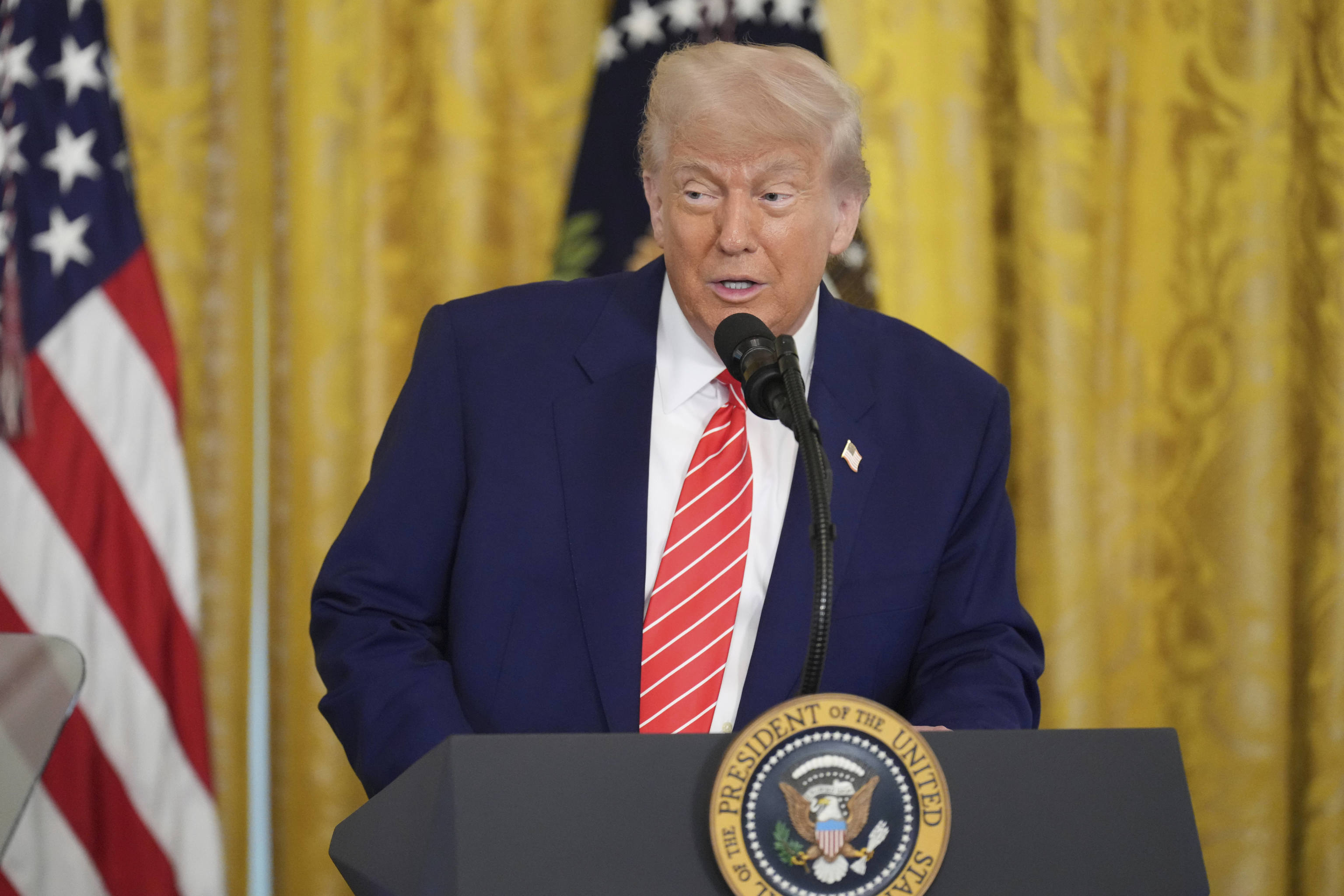One month and a week after the so-called "Liberation Day," in which Donald Trump declared total tariff war against the rest of the world, the United States has announced this Thursday, with great fanfare, its first trade agreement, with none other than the United Kingdom, on the same day that marks the end of World War II in Europe.
The president made the announcement from the Oval Office, surrounded by his government's top officials, in front of cameras and with British Prime Minister Keir Starmer connected by phone, stating that it will bring advantages worth billions of dollars thanks to increased market access for U.S. exports, including beef, ethanol, and other agricultural products.
Tariffs are reduced but still in place
London, however, remains cautious because everything is up in the air; concluding it will take many weeks and could even derail. This is because the preferential relationship that its prime minister boasts about, citing Churchill, that historical bond has not led the White House to lift the 10% tariff on all British products wanting to be sold in the United States. A clear message to the rest of the world, even though London still hopes to be able to change it.
The British government, simultaneously negotiating an agreement with the European Union to improve post-Brexit conditions, insists that it will not change its phytosanitary standards, so hormone-treated meat, for example, will still not be exportable. No details were provided today on digital taxes and the taxation of big tech services.
"This agreement has materialized because Prime Minister Starmer did a fantastic job. His representatives are absolute professionals and have done very well. But I think one of the reasons is that we blew up the whole system, we blew it up because it was very unfair to the United States," Trump boasted to reporters, without clarifying the status of negotiations with the European Union, which today explained the specifics of the response it is preparing to American protectionism. "It's fantastic," he simply said about Ursula von der Leyen. "Everyone wants agreements with us."
The agreement is not yet sealed
Trump and his team had promised 90 trade agreements in 90 days. The Republican leader himself had claimed that there were already nearly 200 agreements almost signed. Neither of these things comes close to reality. The understanding with London, in fact, is not even sealed. But Trump, pressured by the poor performance of the economy and market tensions, has forced the announcement, admitting that it will take weeks, if not months, to finalize and sign it. In fact, while Trump spoke of historic terms and the prime minister showered praise on the president, the British ambassador to the U.S., veteran Peter Mandelson, emphasized that this is for now "a starting point," not the end. In earlier statements to the press, Mandelson said the agreement "provides us with the platform, the springboard to what I believe will be even more valuable for both countries in the long run."
"The United Kingdom will reduce or eliminate numerous non-tariff barriers that unfairly discriminated against American products, a great agreement that will also be very beneficial for the United Kingdom. They are opening up their relatively closed economy, and we appreciate that. They will also streamline the customs process for American products. Thus, our exports will be approved quickly, without bureaucracy. The final details will be drafted in the coming weeks, but we will have a very conclusive agreement. We believe that virtually everything has been approved," Trump assured.
Among the pending details, the main one is what will happen with the tariffs, a severe penalty that remains in place. Trump imposed astronomical restrictions on all his partners, but after seeing the market collapse, he opted to backtrack and reduce them to 10%, at least for 90 days, while negotiating. Commerce Secretary Howard Lutnick indicated only that one of Washington's concessions is reducing the 25% tariff on car imports to 10%. "We have agreed that they could send 100,000 cars to the United States and pay only a 10% tariff, to protect their automotive industry," clarified Lutnick, mentioning that Rolls-Royce engines and aircraft parts will also be exempt from tariffs, while the United Kingdom will buy Boeing aircraft worth $10 billion.
"We will have access to the market for chemicals, machinery, and many other American industrial products that were previously not allowed. Additionally, in a historic step, the agreement includes plans that will align the United Kingdom with the United States on economic security matters. It is the first of its kind and is very important because the United Kingdom has been a great ally; many people say it is our best ally," added the president.
"This is a truly important agreement. It will boost trade between our countries and not only protect jobs but also create them, facilitating market entry. And, as you say, Donald, the timing is perfect because not only was it 80 years ago when Europe achieved victory after World War II, but of course, on that day, the United Kingdom and the United States remained united as the closest allies," Starmer affirmed over the phone.
